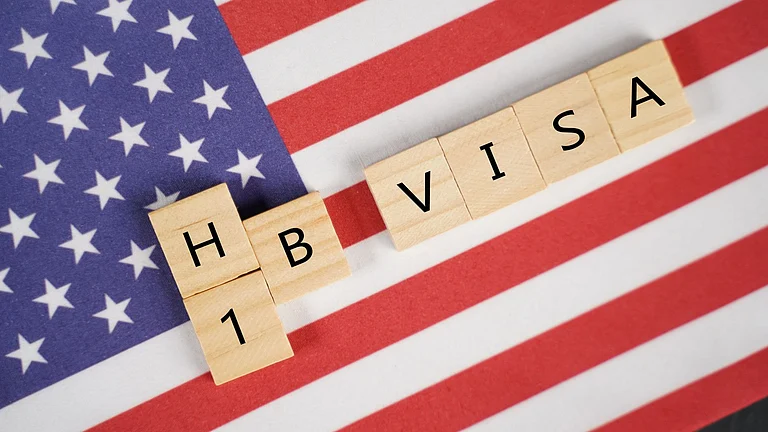
Trump’s $100,000 H-1B fee may cut 5,500 immigrant authorizations monthly.
Indian workers and technology firms face greatest impact from visa fee hike.
Economists warn fee could dismantle H-1B system, eliminating 140,000 jobs yearly.
California AG Bonta considers legal challenge over uncertainty, Administrative Procedure Act violations.
The Trump-led US administration’s new $100,000 application fee for H-1B visas could possibly lead to cutting off immigrant work authorizations by nearly 5.500 per month, JPMorgan Chase & Co. economists Abiel Reinhart and Michael Feroli said.
According to a Bloomberg report, even though the number may seem “fairly small” compared to the overall US labour market, the economists pointed out that technology firms and Indian workers would face the most impact.
Data says that computer-related roles made up nearly two-thirds of H-1B approvals in FY24, with half of the petitions tied to professional, scientific, and technical services. In addition to that, around 71 per cent of approved petitions were for Indian nationals. Among the 141,000 H-1B petitions approved for new employment last year, roughly 65,000 were processed abroad. Economists noted that these are most vulnerable to the new fee.
“If all of them were to stop, it would reduce work authorisation for immigrants by up to 5,500 per month, unless immigrants are able to use other visa categories to get employment,” they said.
Senior economist at Revelio Labs, Loujaina Abdelwahed said the dramatic fee hike is “effectively equivalent to dismantling the H-1B system”, thereby potentially eliminating up to 140,000 new jobs each year in US companies that depend on foreign talent.
On the other hand, the US labour market has already slowed, with just 29,000 payrolls added on average on a monthly basis over the past three months. Federal Reserve Chair Jerome Powell described the trend as a “marked slowing” in worker supply and demand, partly due to lower immigration.
As per Bloomberg Economics, the fee will push visas toward higher-paying jobs in technology, finance, and healthcare, while squeezing out lower-paid positions in areas such as education.
California Attorney General Rob Bonta took a dig at the Trump administration’s decision, saying the fee adds “uncertainty and unpredictability” for businesses that rely on skilled workers. In a conversation with Bloomberg News, Bonta warned the move would have an “adverse impact” on California, which depends heavily on the H-1B programme to fuel its tech-driven economy.
“So the short answer is, we are looking at it,” Bonta said while adding, “we will assess whether there’s a legal violation. If it’s a policy that we don’t agree with but it’s legally sound, we won’t challenge it. If it’s unlawful, we will.”
Previously with other Democratic attorneys general in challenging Trump-era policies, Bonta said his office is examining whether the visa fee violates the Administrative Procedure Act, something that requires a proper justification and public notice before new rules are enforced.
He said, “You need to have a reasoned justification, It can’t be arbitrary, it can’t be capricious… it might be appropriate here, but we’re still looking.”
The H-1B visa programme is widely used by tech firms, finance companies, and consulting firms to bring in skilled foreign workers. While emphasizing on the need for businesses in terms of “certainty” in government policy, Bonta said, “We wouldn’t be here without the talent that has come to California on these visas.”































